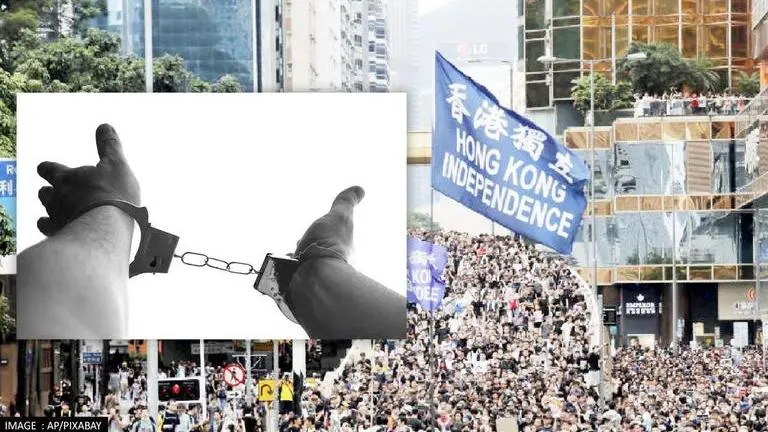Updated 18 October 2021 at 10:49 IST
Hong Kong graduate gets 1-year jail sentence in connection with 2019 anti-China protests
Yau Wang-tat who was present at the Tsuen Wan confrontations during the 2019 anti-China protest movement, received a 12-month sentence for 'unlawful assembly'.
- World News
- 3 min read

A university graduate, Yau Wang-tat, who was present at the Tsuen Wan police confrontations during the 2019 anti-China protest movement was handed a 12-month sentence by a Hong Kong court. Yau Wang-tat has been punished by the court for 'unlawful assembly', Radio Free Asia reported. After being sentenced, Yau urged Hongkongers to not be afraid of the political control being exerted by the Chinese Communist Party over their everyday lives.
“Just flatten it; it won't be enough to keep you from freedom. I can still feel you all watching me, and that feeling will carry me forwards, my back looking back at the past,” news agency ANI quoted Yau Wang-tat as stating on social media.
Yau was detained while offering to assist a teenager Tsang Chi-kin after he had been shot with a live bullet by a police officer in Tsuen Wan on 1 October 2019, Radio Free Asia reported. Furthermore, Yau had struggled to finish his physics degree while dealing with the stress of the legal fight, but he was eventually successful, according to his lawyer.
7 Hong Kong activists imprisoned
Meanwhile, on October 16, a Hong Kong district court convicted seven Hong Kong activists for up to a year of imprisonment for their involvement in a demonstration last year against China's national security law.
The convenor of the now-defunct Civil Human Rights Front, Figo Chan Ho-wun has received the worst punishment among the seven activists, receiving 12 months in prison, Sputnik reported. Considering their social position, former legislator Wu Chi-wai and ex-district councillor Tsang Kin-shing were each sentenced to ten months in prison, while the others were sentenced to six to eight months.
Advertisement
The 2019–2020 Hong Kong protests
As per Radio Free Asia, millions of Hongkongers took part in a massive demonstration in 2019 that began with widely spread opposition of the plans to permit the extradition of Hongkongers to mainland China. The protest also grew for urging full democracy and authoritative accountability. Many demonstrations were also held over unprecedented police violence.
The Anti-Extradition Law Amendment Bill Movement which is also known as the 2019–2020 Hong Kong protests, conducted a string of demonstrations that began on 15 March 2019, and gradually declined by early 2020. As a result of the anti-government riots that destabilised the city last year, Beijing enacted a national security law on June 30. As per the law, any action of secession such as breaking away from China, subversion like undermining the central government's power or authority, terrorism, or cooperation with foreign forces is punishable with terms that may include life imprisonment.
Advertisement
(Image: AP/Pixabay)
Published By : Anwesha Majumdar
Published On: 18 October 2021 at 10:49 IST
